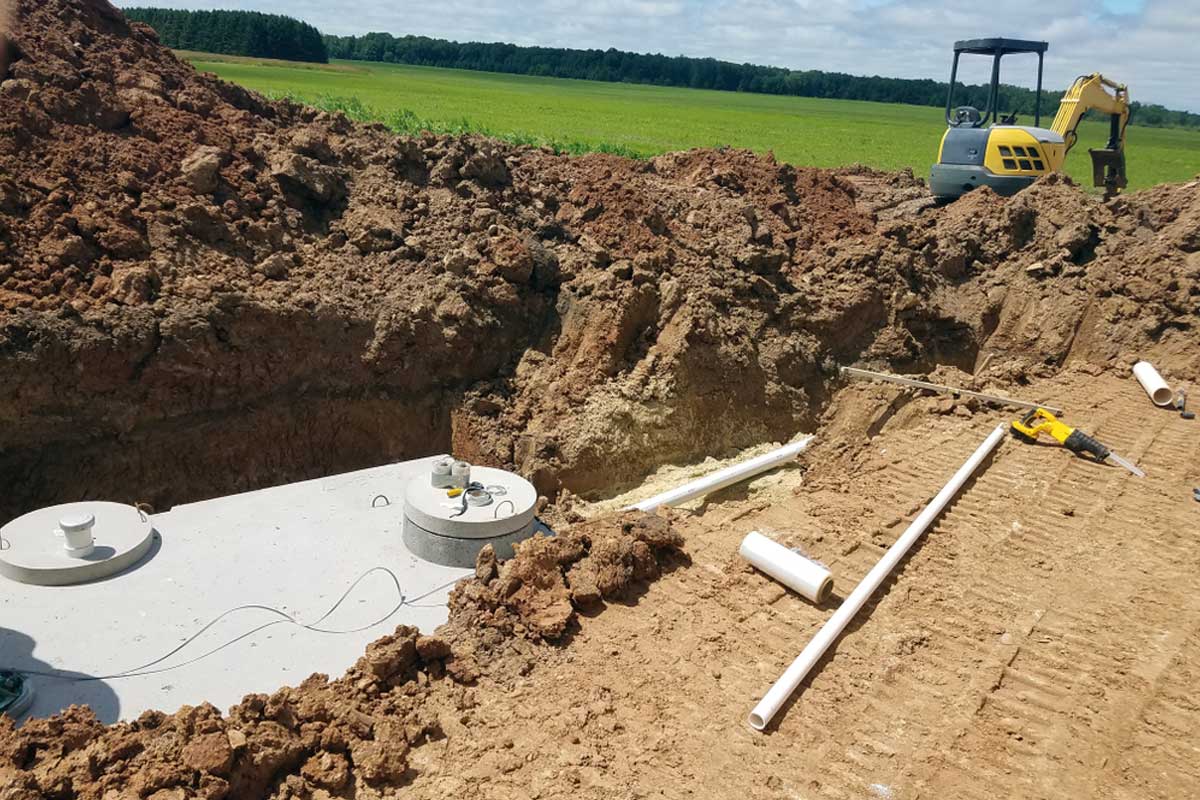You likely have a system to manage your waste when you don’t reside in a property that has an urban sewer line. Septic systems are efficient and eco-friendly way to handle the flow of sewage. However, they’ll need regular maintenance and could eventually need to replaced. This article will offer an entire guideline for managing the costs of Septic systems, both for installation and replacement.

Installation of a Septic System
Although a septic tank installation can be costly but it is vital to make sure that the wastewater that is discharged from your property is treated effectively and safely. The price of installing a septic tank can be contingent on numerous variables.
Property size: In order to accommodate the higher flow of wastewater large properties require bigger septic systems. Larger homes will require larger and more expensive septic systems.
There are many bedrooms. The size of your septic tank will depend on how many bedrooms you have in your house or office. New Hampshire requires that a minimum of a 1000-gallon tank be set up for three bedrooms up to and an additional 250 tanks be included for every additional bedroom.
Site conditions The terrain of your property, as well as the type of soil and its permeability will influence the cost of installation. Particularly challenging terrains or soil conditions might require additional excavation or specialized equipment to be used, which can increase the price.
Permitting and zoning regulations: Permitting and zoning requirements vary by state and locality and could result in additional costs for obtaining permits and inspections.
The typical cost for the New Hampshire septic system installation is anywhere from $5,000 to $10,000, based on the variables mentioned above. It is important to understand that this is only an estimate, and the final price may differ according to the specific circumstances of each individual.
The cost of replacing a septic system
In accordance with how they’re used and maintained, septic systems can last for 20 to 40 years. It’s typically more affordable to completely replace a septic system instead of attempting to repair it. Your septic system could need to be replaced if it has slow drains and standing water in your yard or backups of sewage.
The cost of installing a new septic system may differ dependent on a number of factors like the size of the property as well as the number of people and conditions. A replacement for a septic system is usually more expensive than a brand-new one since the old system must be removed and destroyed correctly.
The cost for replacing the New Hampshire septic tank is between $25,000 and $10,000, based on the factors mentioned. Again, it is essential to keep in mind that this is only an estimate and the actual cost could differ based on the specific circumstances.
Tips to control the cost of your septic system
Regular maintenance regular inspections and pumping can extend the life of your septic tank , and also prevent costly repairs.
Choose the right contractor: Picking a trustworthy and experienced contractor can assure that your septic system is installed correctly and to specifications, saving you money on costly repair costs or fines for non-compliance.
Beware of flushing nonbiodegradable substances. The flushing of nonbiodegradable items like diapers, pads, and wipes can block the septic system. This can lead to costly backups.
Save water. This will lower the load on your septic tank, and extend its lifespan.
Select the best system for your home Selecting the best design for your septic system property will save you money on installation and ongoing maintenance costs.
A proper septic tank maintenance program is vital to keep your system safe and functioning. Cleaning your septic tank regularly is a cost-saving measure that can save you money on repairs, and also reduce the risk of contamination by groundwater. It can also help prevent backups and odors. Regular pumping can increase efficiency and avoid costly damage due to cracks and blockages. Regular inspections can help to spot potential problems earlier. These steps will ensure that your septic system remains safe and meets the environmental standards. A written maintenance schedule for your septic tanks can allow you to save time and money. You’ll also enjoy peace of mind knowing your commercial or home will have a working system for a long time.
For more information, click cost to replace septic tank
